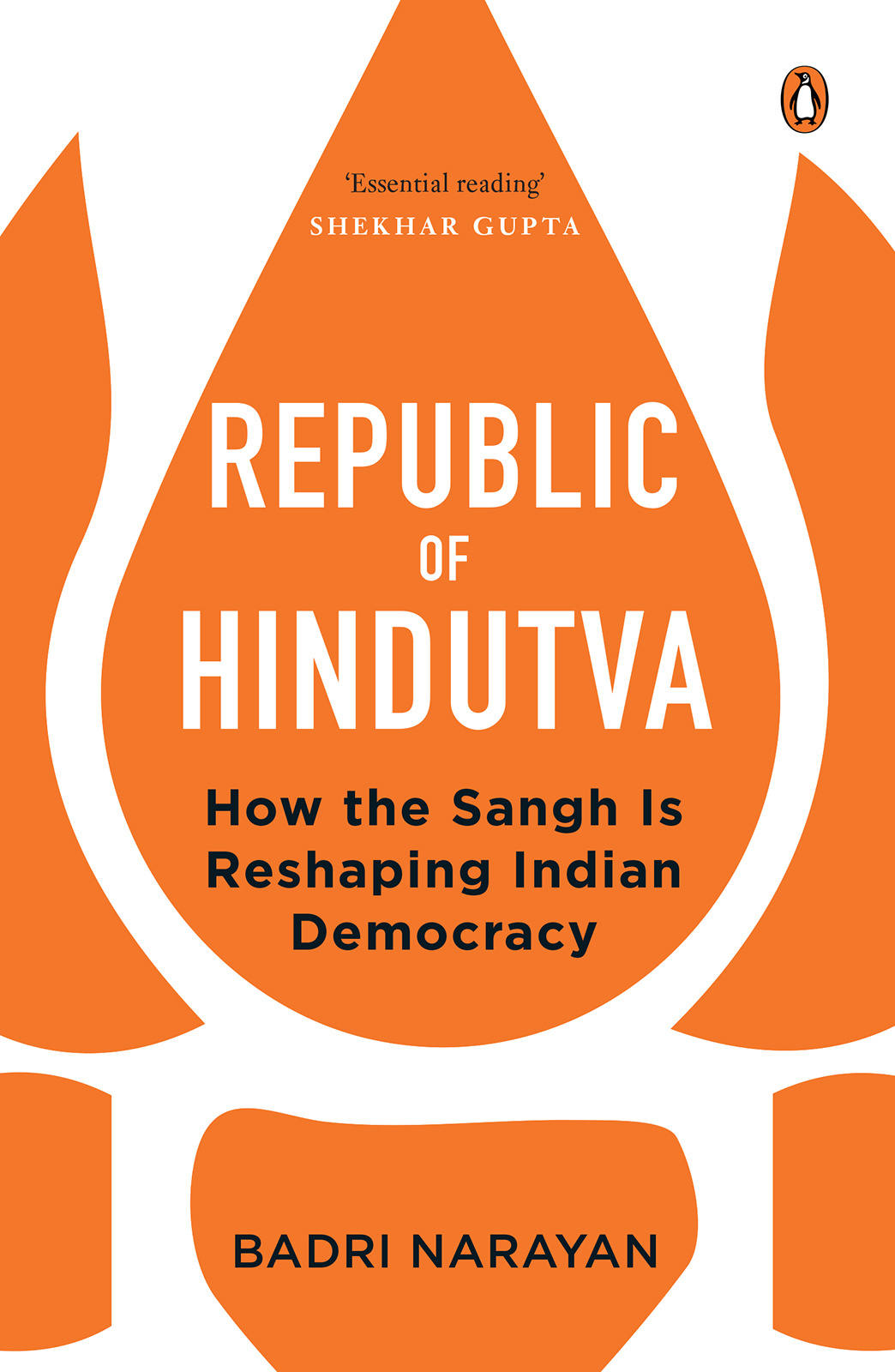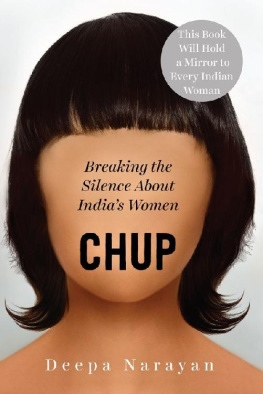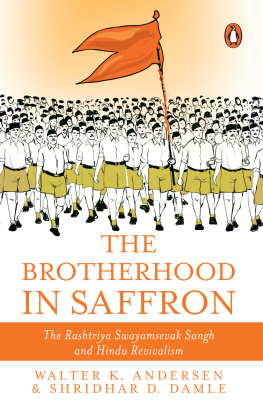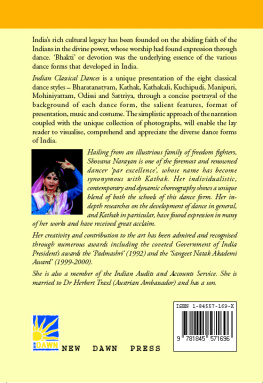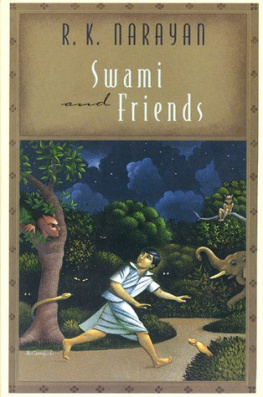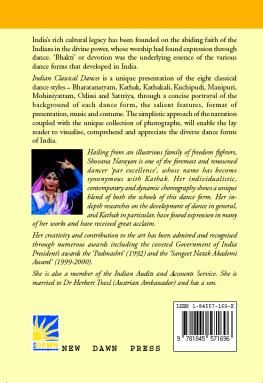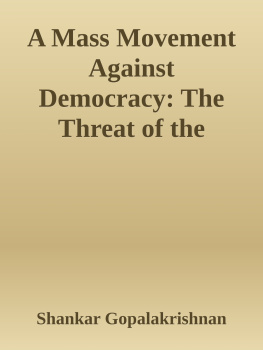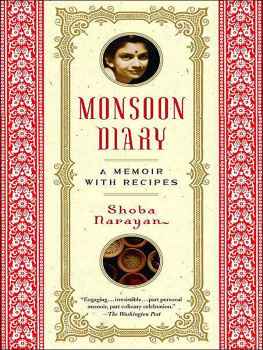BADRI NARAYAN
REPUBLIC OF HINDUTVA
How the Sangh is Reshaping Indian Democracy
CONTENTS
Advance Praise for the Book
Given the centrality of the RSS to Indian politics, if not the role it has played over the past seven decades, the paucity of Indian scholars research on the organization is disappointing. Much of what we read and cite comes from foreign scholars. Noted social scientist Badri Narayans Republic of Hindutva fills this gap. It bristles with great insights, including how the RSS has tried to absorb all social groups, reinterpreted Ambedkar and evolved a strategy of mobilization minus communal riots. It will be essential reading and reference for scholars, journalists and politiciansShekhar Gupta, founder and editor-in-chief, ThePrint
With the help of painstaking fieldwork in Uttar Pradesh and Bihar, Badri Narayan provides a ringside view of the objectives and strategies of the continuously evolving Sangh Parivar. He shows that it is perhaps the only force in India today which understands that building a comprehensive collective narrative is crucial as a means not just for acquiring state power but for retaining it. This short but incisive book is indispensable to anyone keen on understanding the political appeal of HindutvaRajeev Bhargava, honorary fellow and director, Institute of Indian Thought, Centre for the Study of Developing Societies, Delhi
To Babuji
I dont write a book so that it will be the final word; I write a book so that other books are possible, not necessarily written by me.
Michel Foucault
Introduction
As political analysts all over the world would agree, the stunning rise of the Bharatiya Janata Party (BJP; Indian Peoples Party) happened due to the political strategies of the current prime minister of India, Narendra Modi, his right-hand man, Amit Shah, who is the current minister of home affairs and a former president of the BJP, as well as the hard work and support of the Rashtriya Swayamsevak Sangh (RSS; National Volunteers Association) and other allied organizations like the Vishwa Hindu Parishad (VHP; Universal Hindu Council) and Bajrang Dal. These comprise the cultural wing of the group known as the Sangh Parivar (Sangh Family), of which the BJP is also a member. Among all the members of the Sangh family, the RSS is the garbhgriha (womb) of Hindutva politics. The RSS and the BJP share a very strong bond and the Sangh has contributed a lot in the making and strengthening of the BJP ever since the party was recast in its present form in 1980. The BJP traces its roots to the Bharatiya Jana Sangh (Indian Peoples Association), which was established in 1951 as the political wing of the RSS by Syama Prasad Mookerjee. Although sometimes the BJP appears as the political wing or mass organization of the RSS, in reality the BJP has developed its own way of creating a hegemonic influence on the Indian public, while the RSS provides organizational support to various BJP political campaigns through its well-organized cadre base.
In the first tenure of Narendra Modis prime ministership from 2014 to 2019, the RSS had managed to establish itself as an important centre of influence. But what are the dynamics of the relationship between Modi and the RSS? Some analysts believe that although the RSS played an important role in ensuring Modis victory in the Lok Sabha elections, he is not under pressure to follow the diktats of the RSS regarding political strategies. These analysts dont tire of saying that Modi made the RSS totally ineffective in Gujarat. Another set of analysts believes that the RSS is giving unconditional organizational support to the BJP only to boost Modis popularity, particularly at the grassroots level. I am of the same opinion. In the Lok Sabha elections, the RSS cadres worked shoulder to shoulder with the BJPs prachar (advocacy) team. They toiled at the booth level and provided the campaign strategists with regular feedback from the ground. Thus, a section of the RSS cadres came out of their close-knit shakha s (daily training assemblies; literally, branches) and entered the rough and tumble of elections. It must also be remembered that Modi was himself an RSS pracharak (cadre) for many years before he entered politics. His psyche and world view was formed and nurtured by the Sangh. Of course, during his tenure as the Gujarat chief minister he moved beyond the RSS mould and came to be known as a business-friendly, tech-savvy administrator.
In this book, I will try to tell the story of democracy and elections that unfolded in India in 2014 and 2019 from the perspective of Hindutva politics. It is based on extensive fieldwork, over several years, in different parts of India, especially in Uttar Pradesh (UP) and Bihar, which I undertook to understand the rise and growth of Hindutva. I will discuss how the forms and processes of Hindutva politics deal with the politics of democracy in India.
My attempt is to document how organizations based on the Hindutva ideology, such as the RSS and its affiliates, work at the grassroots to ensure their expansion socially, culturally and politically. I will also question the stereotypes and myths about Hindutva politics, organizations and their sociopolitical actions, which exist due to certain biases resulting from our distance from grassroot realities. It is interesting to observe how ideology translates into practice at the grassroots and how those experiences and insights bring changes in turn in the structure of Hindutva-influenced organizations. It is also interesting to see how through their grassroots initiatives, Hindutva forces are reshaping Indian democracy in their own ways.
The RSS as an organization is both a reality and a myth. There can be no final word on it. One of the reasons for this is that it is continuously changing and evolving. It constantly destroys and renews its image. As mentioned, the Sangh has many allied organizations such as the BJP, VHP and the Bajrang Dal, which together constitute the Sangh Parivar. But what isnt known is that there are many small social, cultural and educational outfits that arent allies of the Sangh but are closely associated with the RSS. These are outfits like Rashtriya Sewa Bharti, Vidya Bharti, Vandemataram, Vanvasi Kalyan Ashram, Keshav Sharanam, Shiksha Sanskriti Utthan Nyas, Shishu Shiksha Prabandh Samiti, Sahakar Bharati (a microfinance unit of Sangh Parivar), which are active in many states and are used to spread the RSS message. Many other small organizations working on different social projects active in various parts of India are named after Hindu gods and goddesses in order to make them more attractive to Hindus. However, it should be mentioned that these organizations function independently of the RSS. For example, the Saraswati Shishu Mandir schools that have branches in several parts of UP are not run by the RSS but the RSS message is imparted to the students in these schools. Several schools and intermediate colleges in cities like Prayagraj (earlier known as Allahabad), Kanpur, Lucknow and Varanasi are heavily influenced by the RSS. These institutions are run by people involved with the RSS and many teachers are members of the RSS. They regularly organize activities targeting different sections and age groups, including workshops for children, katha mandal s (religious and spiritual discourses) and keertan mandal s (religious chants and songs) for women and senior citizens. The aim is simple: creating a Hindu consciousness and spreading the message of Hindutva. Some of these events are on such a large scale that even the top RSS leaders like Mohan Bhagwat, the sarsanghchalak (chief) of the RSS, attend them.

